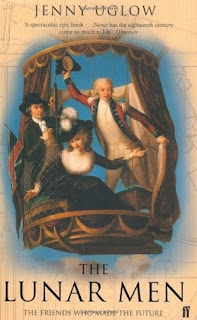“‘Now, what I want
is, Facts. Teach these boys and girls nothing but Facts. Facts
alone are wanted in life. Plant nothing else, and root out everything
else. You can only form the minds of reasoning animals upon Facts:
nothing else will ever be of any service to them. This is the principle
on which I bring up my own children, and this is the principle on which I bring
up these children. Stick to Facts, sir!’
The
scene was a plain, bare, monotonous vault of a school-room, and the speaker’s
square forefinger emphasized his observations by underscoring every sentence
with a line on the schoolmaster’s sleeve.”
From ‘Hard
Times – For These Times’
By Charles Dickens (1854)
As someone in Britain who went to school in the era of Margaret Thatcher
("milk snatcher"), my history education from the ages of 10 to 16 was
effectively limited to hard-boiled, concentrated facts and figures relating to
the Industrial Revolution, with a sprinkling of World War 1 & World War 2
jingoism thrown in for good measure. Thankfully (& perhaps astonishingly)
this nauseatingly Gradgrind-esque introduction didn't succeed in putting
me off history for life, but conversely it perhaps gave me the inkling that
there must be so much more to history than simply this – and if any book amply
demonstrates that my younger-self's hunch was true, then this is that book!
“The earth turns and the curving shadow
sweeps round the globe. The sun sets, the moon rises, and all that is familiar
feels suddenly strange. In an age before street lights, link boys carry torches
to see city-dwellers home, while in the countryside starlight and moonlight are
the only guides. The footpads are out, a darker blackness against shadow, so
for safety’s sake men walk together when they roll back from the coffee-house,
the tavern and the club. And in the eighteenth century clubs are everywhere:
clubs for singing, clubs for drinking, clubs for farting; clubs of poets and
pudding-makers and politicians. One such gathering of like-minded men is the
Lunar Society of Birmingham. They are a small, informal bunch who simply try to
meet at each other’s houses on the Monday nearest the full moon, to have light
to ride home (hence the name) and like other clubs they drink and laugh and
argue into the night. But the Lunar men are different – together they nudge
their whole society and culture over the threshold of the modern, tilting it
irrevocably away from old patterns of life towards the world we know today …”
From
‘The Lunar Men – The Friends Who Made
the Future’
by
Jenny Uglow (Faber & Faber, 2002)
'The Lunar Men' is a densely written, yet utterly rewarding tome which shows how the scientific revolution and the Enlightenment era ethos of the eighteenth century paved the way for the subsequent industrial revolution which transformed British society and ultimately shaped the way we live today. Taking the Lunar Society as her lens through which to do this, Jenny Uglow sets out in formidable detail how the scientific endeavours of these men belied the means by which they each made their livelihoods, how they were each interconnected not simply amongst themselves, but also through correspondence with their counterparts on the Continent and in America, as well as the influences derived from their spouses in these projects, which were often continued by their children, and all of which is dizzingly set in the broader context of the times (both political and social) in which they lived – making this book a truly impressive and enjoyable read.
It's not just the distinct characters of the Lunar men themselves – John Whitehurst, Matthew Boulton, Josiah Wedgewood, Erasmus Darwin, Joseph Priestley, William Small, James Keir, James Watt, William Withering, Richard Lovell Edgeworth, Thomas Day, and Samuel Galton – whom Uglow brings to life, but the revolutionary era in which they lived too. As a portrait of such a dynamic epoch it teems and wriggles with detail, furiously busy and energetic apparently as much in the living as in the retelling itself. Jenny Uglow is a companionable guide with a seemingly encyclopaedic interest which ably matches the curiosity of the Lunar men themselves.
“The group itself was more than an
assortment of single beings. It had an evolving life of its own, becoming
almost a mirror, or a microcosm, of the way that the different currents flowed
together through the second half of the eighteenth century, conflicting and
colliding to create a new society. And these appear differently in different
lights. The Lunar group were bourgeois capitalists who constantly downplayed
the role of labour and overstated the importance of leaders, thinkers,
inventors; but they were also radicals, educators and firm believers in the democracy
of knowledge. Buoyant, sparkling, self-made men, they used the old networks of
patronage and class, but also defied them, shifting the axis of power from
metropolis to province, from money men to industry, from Parliament to the
people.”
Finally, in reading this book, it feels as though all those mind-numbing facts
and figures of my distinctly dreary early history lessons have suddenly come to
life – living, breathing, thinking, talking individuals linked up with
wheezing, thundering, steam-puffing, infernal machines, and the inquisitive
exuberance of tightly-crammed jottings in battered notebooks painstakingly turned into
learned books and technically brilliant new types of ceramics; swishing
butterfly nets, tinkering at an endless range of curiosities with determined seriousness – of oxygen and laughing gas, hot air balloons, thermometers,
canals, experimental air-pumps and electrical apparatus, alongside restless angry mobs,
philosophers, anti-slavery campaigners, revolutionaries, free-thinkers,
pioneering scientists, artists, engineers, and so much more, all happening
simultaneously ... It's enthralling stuff, exactly what a history lesson should
be!




No comments:
Post a Comment
Comments do not appear immediately as they are read & reviewed to prevent spam.